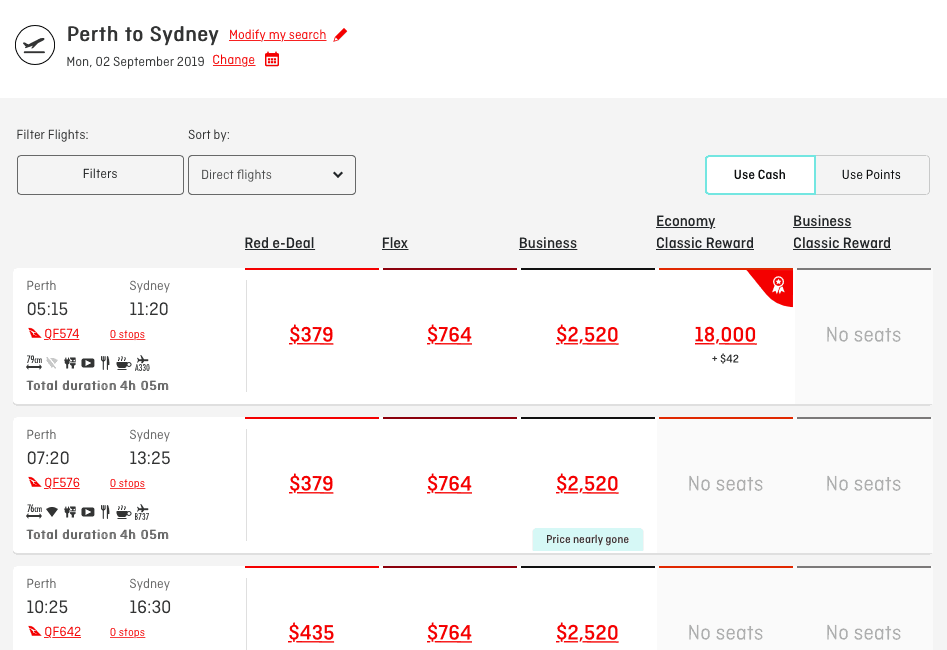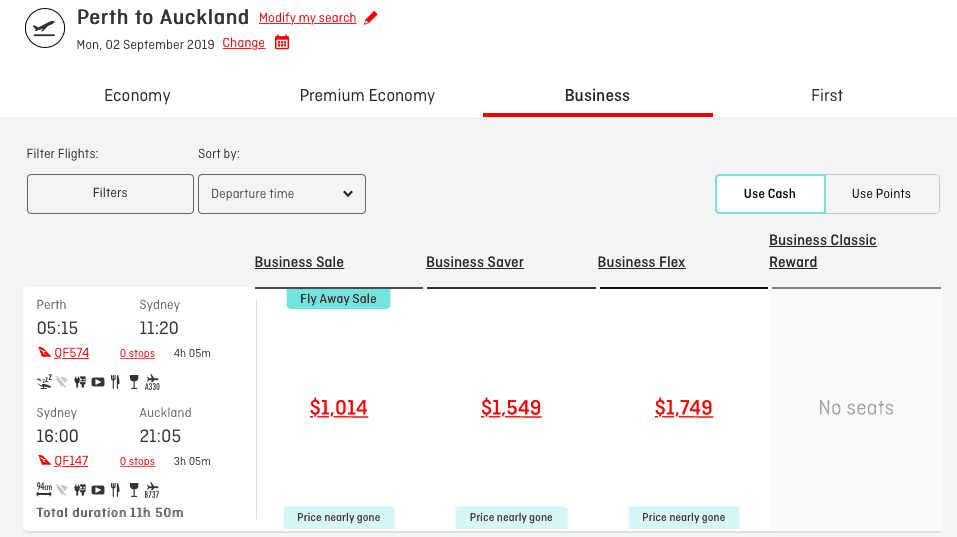How Hidden-City Fare Pricing Works
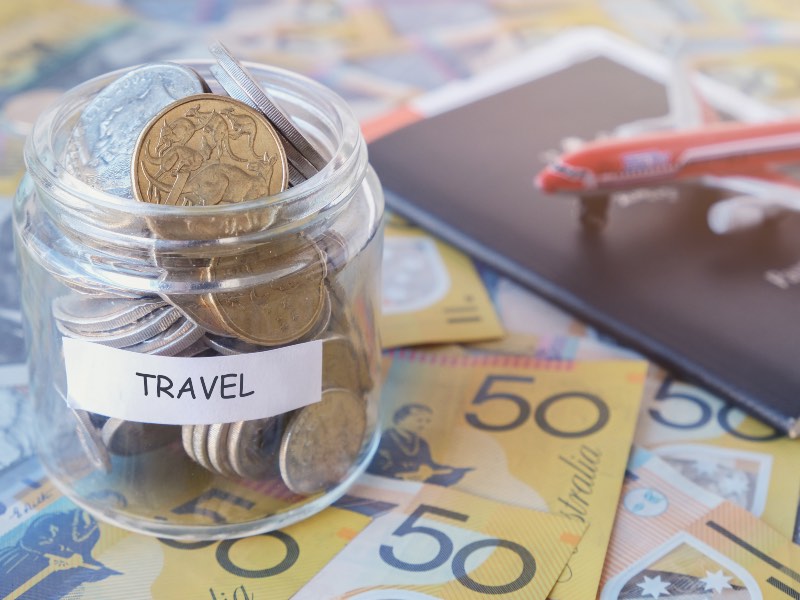
Ever noticed that it was more expensive to fly from A to B, compared to flying from A to C via B? This phenomenon is known as “hidden-city” pricing, and airlines hate it when passengers exploit it.
Although hidden-city ticketing is more prevalent overseas, it does exist in Australia. In one example, a Qantas Business class flight from Perth to Sydney would cost $2,520:
But a ticket from Perth to Auckland via Sydney, using exactly the same flight from Perth to Sydney, costs less than half of the price:
This is not unique to Qantas. A Business class flight from Perth to Sydney with Virgin Australia is also more expensive than a Perth-Sydney-Auckland ticket:
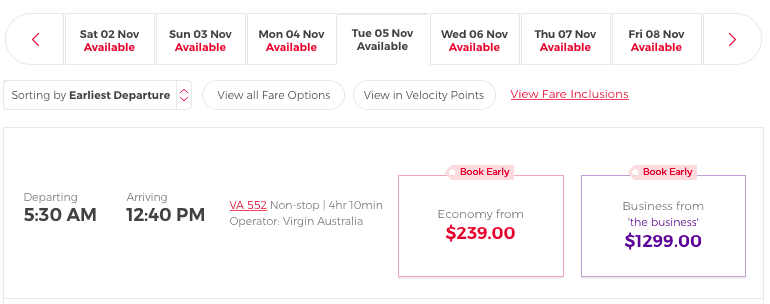
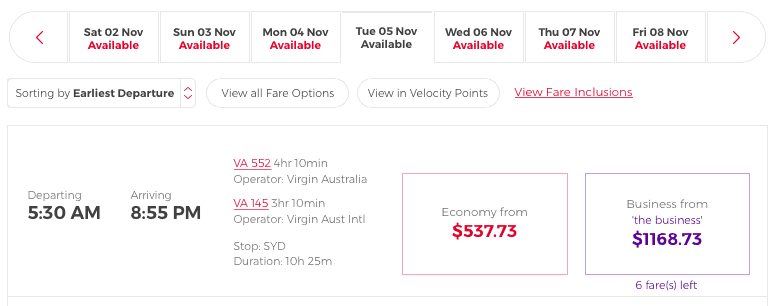
The hidden-city pricing loophole generally exists where an airline doesn’t offer a direct service between two cities, but is trying to compete with an airline that does. In the case of Perth-Auckland, Air New Zealand has a direct flight but the Australian airlines do not. So, they need to price their Perth-Auckland fares to compete accordingly. But there is no such competition on routes like Perth-Sydney, where supply and demand in that O&D market allows for a much higher Business class fare.
This is also one of the reasons why airlines use married segment logic.
Can you take advantage of hidden-city pricing?
If you wanted to fly from Perth to Sydney in Business, it may be tempting to book a ticket to Auckland instead and just not show up for the Sydney-Auckland flight. But we don’t recommend this for several reasons.
Firstly, this would not work if you checked in luggage. Your bags would be tagged from Perth to Auckland, and you wouldn’t be able to pick them up in Sydney unless you asked for the bags to be short-checked – something airlines won’t generally do unless you have a good reason.
There have also been reports of airlines cracking down on serial users of hidden-city ticketing. German airline Lufthansa recently tried (unsuccessfully) to sue a passenger that booked a cheaper ticket to Denmark, but only flew as far as Germany. Meanwhile, airlines in the United States have been training their staff to look for passengers that don’t show up for a flight without a good reason. The airlines worry that this practice results in an unfair loss of revenue. Consequences for serial offenders that are caught can include a ban from the airline and frequent flyer accounts being suspended.
You should also be aware that the failure to board any flight on your ticket will result in all subsequent sectors being cancelled. So, hidden-city ticketing only works if you plan to skip the last flight on the ticket – and not the first!
Join the discussion on the Australian Frequent Flyer forum: Why I hidden city ticket
